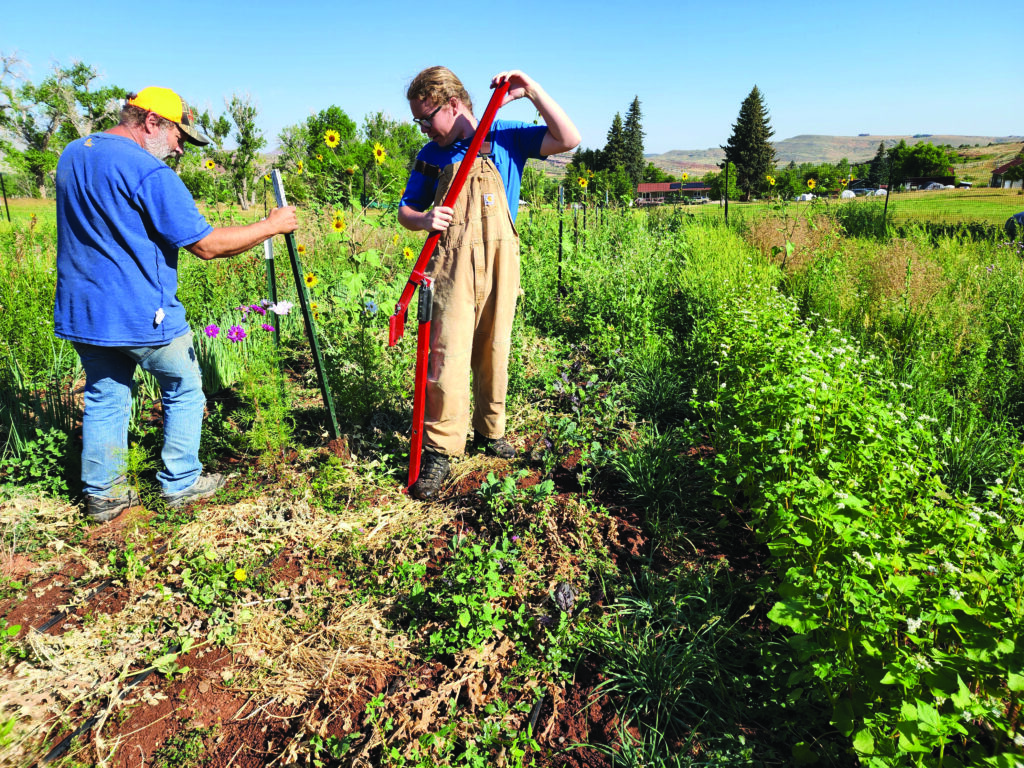Home / News / 2023-2024 News / FROM CLASS TO MARKET, CWC AG TAKES OFF
FROM CLASS TO MARKET, CWC AG TAKES OFF
Home / News / 2023-2024 News / FROM CLASS TO MARKET, CWC AG TAKES OFF
FROM CLASS TO MARKET, CWC AG TAKES OFF

Article Courtesy of Riverton Ranger
Shoppers at the Lander Valley Farmers’ Market on North Third Street may be surprised to see a table and garden goods from Central Wyoming College’s Rustler Produce Company. CWC operates a student farm and a farm incubator program at the Alpine Science Institute out on Sinks Canyon Road and products grown there are brought into the farmers’ market for sale.
Ethan Page heads up the program for the college and he told Rotarians last month that CWC’s AAS Degree in regenerative agriculture is the first of its kind in Wyoming and it was launched just this past fall. “We cover horticulture science, pest management and use contemporary growing systems. We’re also planning to add a big green house in the future,” he said.
The college also offers basic farming classes including crop production.
“Most young folks don’t have the resources to get started or even scale up diversified fruit and vegetable farms,” Page said. “To reduce these barriers and diversify the local ag industry, we provide production, business skills and mentoring to those in the program.” The goal, he said, is to increase the availability of locally grown food, and expand employment and business opportunities. Page said the program was just starting when COVID-19 hit which he said was both good and bad. Bad because people were not getting together, but good because gardening can be a solo activity and the demand for locally grown products, where you know where the food comes from, has really grown.
Another reason for the college’s dive into locally produced agriculture is that the nutrient value of produce has declined over the past 60 years. “By teaching good soil and environmental health, you get better local food,” he explained.
Page said he has people in his program from 17 years of age to 70. “We’re growing lots of things, including flowers and a variety of vegetable crops along with different farming methods, including regenerative small farming, installing a hydroponic greenhouse and planting cover crops to build up the soil health.” He said different kinds of flowers have been planted “to attract beneficial insects.”
The program also benefits people with little or no experience. “We tailor the program to the individual student needs,” Page said. Courses include crop production practicum and farm business classes. The goal of the program is to get students out into the field, with an 80% field and 20% classroom mix. He called it “Farming Lite.” “We provide a comprehensive education touching on all aspects of small farm management,” he added.
Along with the farming skills, the program also provides farm business classes so students can learn basic business skills and learn how to develop pitches and start business plans.
2660 Peck Avenue
Riverton, WY 82501
(307) 855 – 2000
Campus Map
120 Enterprise Blvd.
Lander, WY 82520
(307) 332 – 3394
Campus Map
240 S. Glenwood St #124
P.O. Box 4795
Jackson, WY 83001
(307) 733 – 7425
Campus Map
302 W. Ramshorn
P.O. Box 175
Dubois, WY 82513
(307) 455 – 2625
Campus Map
© 2024 Central Wyoming College – All Rights Reserved